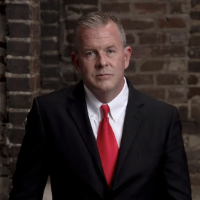Tougaloo Felony Lawyer, Mississippi
Not enough matches for Tougaloo Felony lawyer.
Below are all Tougaloo Criminal lawyers.
Robert Bryan Ogletree
✓ VERIFIEDFamily Law, Divorce, Criminal, Personal Injury, Car Accident
Robert Ogletree has built a diverse practice representing both corporations and individuals. Mr. Ogletree's jury trials include cases involving medic... (more)
Mark Hutchison
✓ VERIFIEDCriminal, Felony, Misdemeanor, Divorce & Family Law, Divorce
I am a former assistant city prosecutor who has been practicing for over 20 years and have represented hundreds of clients. We are primarily a crimina... (more)
FREE CONSULTATION
CONTACTTrey O'Cain
Accident & Injury, Criminal, Divorce & Family Law, Car Accident
Status: In Good Standing Licensed: 21 Years
FREE CONSULTATION
CONTACTWilliam Preston Featherston
Personal Injury, Divorce & Family Law, Criminal, Workers' Compensation
Status: In Good Standing Licensed: 49 Years
Amanda Bolz Barbour
Litigation, Health Care, Federal, Criminal, Personal Injury
Status: In Good Standing
Robert Gerald Barlow
Accident & Injury, Criminal, Divorce & Family Law, Employment, Business
Status: In Good Standing Licensed: 14 Years
Devin Whitt
Workers' Compensation, Divorce, White Collar Crime, Medical Malpractice
Status: In Good Standing



